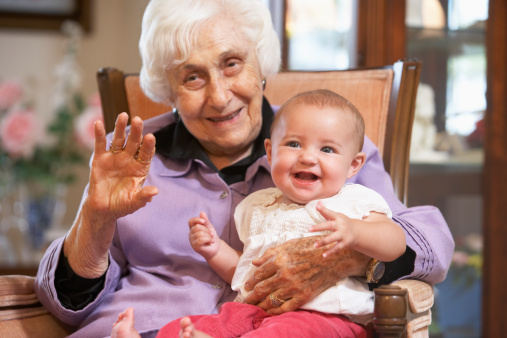Even with the breakdown of organised religion and the tradition of congregations being aware of those in need, there are still plenty of people reaching out to others in their own way. But the truth is, compared to many societies, we do live in relatively isolated conditions, with nearly half of UK pensioners reportedly living alone. With families spread out, this means that for some people their only social interaction is with delivery people.
We could all do with taking a leaf from traditional cultures where elders are treated with the respect they have earned simply through living long lives, and where people live in multi-generational households. Though we might not feel ready to move our parents or in-laws in, we can all reach out to an elder in our community. Here are five ways you can make a difference:
1. Pop by and say hello. If you know of a neighbour who has recently come out of hospital or is living alone, offer to come by and make a cup of tea and have a chat. You’ll soon know if your overtures are welcome, but most people are grateful for a friendly smile and a chat.
2. Offer to pick up shopping. When you’re heading into town to get necessities, make a quick call to elderly neighbours to see if they need any groceries or have any letters to post. Often the thought alone makes people feel good.
3. Enable elderly people to live a full life. That might mean offering a lift to a local event, putting them in touch with organisations that can help, or making a quick phone call to find out something for someone who has hearing problems. Many elderly people don’t have access to the Internet, so won’t be able to do a quick Google search to gather information – it’ll take a few minutes of your time and provide them with a sense of connection to the outside world. Organisations such as Age UK have excellent outreach groups such as Friendship Centres where elderly people can spend time with others.
4. As a way of respecting the wisdom and knowledge of the years, see if your elderly neighbour has a particular skill or interest they’d like to share. Perhaps they are keen knitters or gardeners, or have an intimate knowledge of car engines they can bestow on a younger generation. Being valued for our knowledge and skills is affirming for elderly people who might feel forgotten or useless. And enjoying an evening of knitting is a great way to relax and share conversation.
5. Listen. Everyone has a story to tell. When I did care work, I was always amazed at the incredible stories people shared about their lives. They made me think of fantastic books forgotten on a dusty shelf: because we live in a culture that doesn’t make time for the stories and memories of our elders we miss out on a huge resource of learning and awareness. Since becoming a parent, I love the little nuggets of memory older women share of their own parenting days at unexpected moments. Rather than rush on by, stop and share a story. It’s not quite the same as gathering in reverence around a fire to listen to the wisdom of our elders, but valuing everyone’s contribution to society and memories of lives lived, creates happier and stronger communities.







